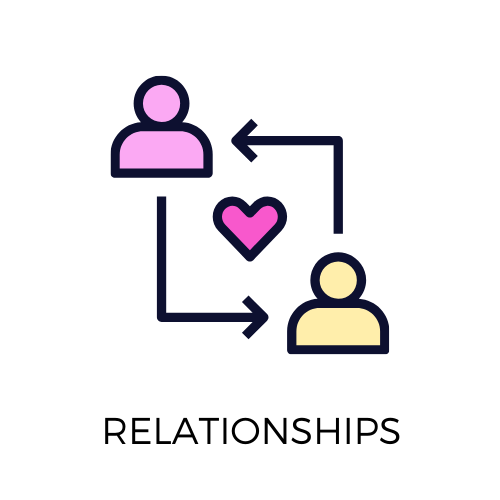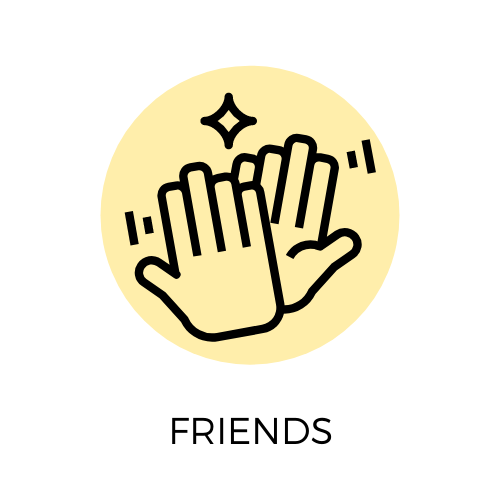3 Wrong Ways to Deal With Your Family During the Holidays (Plus How to Do It Right!)
In so many ways, the holidays are the best times of the year (the food, the decorations, the parties). But in other ways, the holidays can be super stressful (the planning, the shopping, seeing way too many people). Don’t let the stress of the holidays ruin the fun though! Read on to learn 3 common, but ineffective, ways people deal with conflicts. And of course, I’ve also included a better way to handle them. Happy Holidays!
Wrong Way #1: Being Mean (Aggressive)
Being aggressive simply means putting my needs ahead of yours. It means doing whatever it takes to make my point or get what I want. I’ll complain when the mashed potatoes are gummy, because it’s the truth. I’ll talk over you if you try to say I was the one who broke our old neighbor’s window because, hello, I was actually there. And yes, I called you an idiot. You keep saying the words on the freaking Taboo cards!
Sometimes people aren’t even aware that they’re being aggressive. One sign is that you think the other person is being unreasonable, silly, or stupid. Another is if you feel powerful in the moment, but guilty afterward. If this sounds familiar, don’t beat yourself up about it. Being honest and standing up for yourself are good things! Read on to learn how to keep doing that, but in a way that doesn’t, you know, make people cry.
Wrong Way #2: Being “Nice” (Passive)
Being passive is another common mistake that people make. Being passive means putting everyone else’s needs ahead of mine. It means that I do what it takes to make you happy and avoid a fight. Sure, I can put my college essays aside again to make a third trip to Target. Of course, I can watch the kids again while you all go out. No, I don’t mind if you borrow my sweater (even though you never give my stuff back).
Passive people usually do this because they don’t want to be “mean”. Or because they’re afraid if they say no, it will hurt the relationship. You know you’re being passive when you walk away feeling angry and resentful. If this is you, there’s good news. It is possible to say what you mean without risking the relationships that are so important to you.
Related: How to Speak Up Without Feeling Like a Jerk
Wrong Way #3: Being Manipulative (Passive-Aggressive)
Being passive-aggressive is a creative little solution that gives people the best of both worlds. It means I put my needs first, but I do it in a sneaky way so I still get to look good. I might agree to pick Aunt Lou up from the airport at 6 am, but “forget to set my alarm”. I might say we’re out of pie because I want the last piece. Maybe I even laugh along when you make fun of me, but later, bump your drink so it spills in your lap.
When people are passive-aggressive, it’s because they’re afraid of what would happen if they were honest. You know you’re being passive-aggressive when it feels good in the moment, but you’re a little scared you’ll get caught. If this is you, hang on to that creativity, because it will help you handle conflicts the right way.
The Right Way: Being Honest (Assertive)
Don’t feel bad if you learned that you use one of the wrong styles above. Most people do. Being assertive is hard work. It takes a lot of thought, patience, creativity, and courage, but it is so worth it.
So, what is it?
Being assertive means that my needs matter. I’m going to be honest about my needs and stand up for myself. But I’m going to respect you as a person too. Even if I’m mad at you. Even if I think you’re wrong. Even if I don’t even like you.
Being assertive honestly kind of sucks in the moment. It means being kind and respectful even when you’ve been wronged. It requires you to be vulnerable. Being assertive means owning your shortcomings and risking rejection.
So why bother?
Because afterward, it feels amazing. You know you did the right thing. You get what you need. People respect you. They get to know you better. Your relationships are healthier. You feel valued and confident. It is so worth it to practice being assertive.
So what does being assertive look like in action? I’ll use some of the examples from above to show you.
Example 1
Aggressive: These mashed potatoes are disgusting! What did you do to them?
Assertive: The mashed potatoes might be a little overworked, but we still have the sweet potatoes and they look amazing. Why don’t I look on Google to see if we can fix them?
Example 2
Passive: Um, sure, I can watch the kids again. (Internally screams)
Assertive: I love the boys, but I’m seriously exhausted. Let me get some sleep tonight and I’ll take them to the park tomorrow so you can all go to brunch.
Example 3
Passive-Aggressive: Good one, Aunt Lisa! I love how you took my inner turmoil and made it hilarious. You should write for SNL!
Assertive: (Pulls aunt aside) I know you were just trying to be funny, but I’m really freaking out about my major and what you said really bothered me. I’m sure you know how hard it is to make big life decisions and being teased about it isn’t helping.
I’m not saying that being assertive is an easy change or that your family will respond perfectly. It will take a lot of practice for you and your family to get used to the change. But what I am saying is that you will feel better about yourself. You can’t change your family, but you can change how you react to them. Give it a try and see how great it feels. Let me know how it goes in the comments section!












